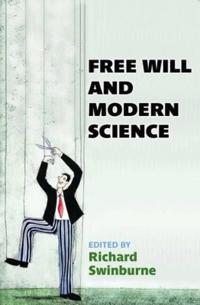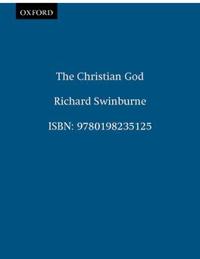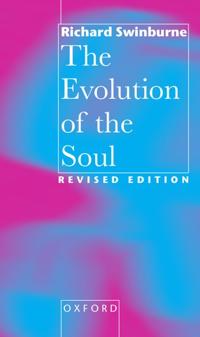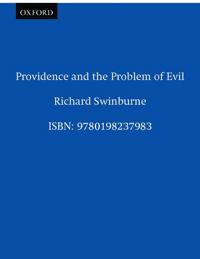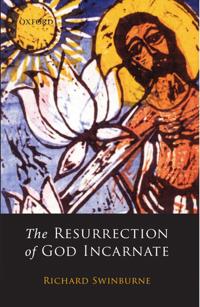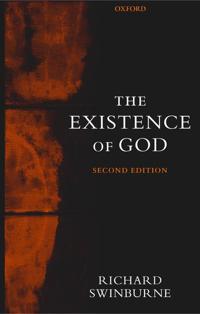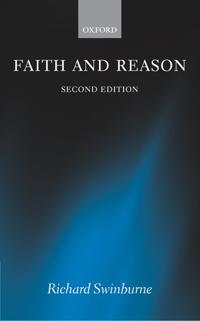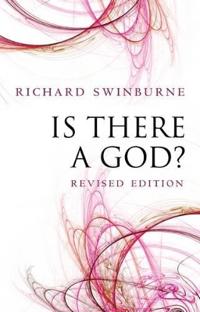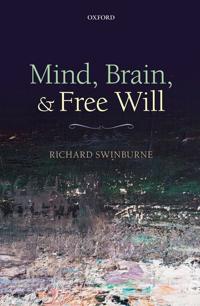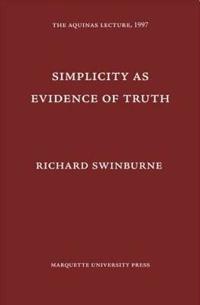Free Will and Modern Science (Pocket)
avRichard Swinburne
ISBN: 9780197264898 - UTGIVEN: 201202Do humans have a free choice of which actions to perform? Three recent developments of modern science can help us to answer this question. First, new investigative tools have enabled us to study the processes in our brains which accompanying our decisions. The pioneer work of Benjamin Libet has led [...]
The Christian God (Häftad)
avRichard Swinburne
ISBN: 9780198235125 - UTGIVEN: 1994-10What is it for there to be a God, and what reason is there for supposing him to conform to the claims of Christian doctrine? In this pivotal volume of his tetralogy, Richard Swinburne builds a rigorous metaphysical system for describing the world, and applies this to assessing the worth of the Chr[...]
The Evolution of the Soul (Häftad)
avRichard Swinburne
ISBN: 9780198236986 - UTGIVEN: 199702Men have evolved from animals, and animals from inanimate matter, but what has evolved is qualitatively different from the inanimate matter from which it began. Both men and the higher animals have a mental life of sensation, thought, purpose, desire, and belief. Although these mental states in part[...]
Providence and the Problem of Evil (Häftad)
avRichard Swinburne
ISBN: 9780198237983 - UTGIVEN: 199808Why does a loving God allow humans to suffer so much? This is one of the most difficult problems of religious belief. Richard Swinburne gives a careful, clear examination of this problem, and offers an answer: it is because God wants more for us than just pleasure or freedom from suffering. Swinburn[...]
Revelation (Häftad)
avRichard Swinburne
ISBN: 9780199212477 - UTGIVEN: 2007-07The great religions often claim that their books or creeds contain truths revealed by God. How could we know that they do? In the second edition of Revelation, renowned philosopher of religion Richard Swinburne addresses this central question. But since the books of great religions often contain muc[...]
The Resurrection of God Incarnate (Häftad)
avRichard Swinburne
ISBN: 9780199257461 - UTGIVEN: 2003-01Whether or not Jesus rose bodily from the dead is perhaps the most critical and contentious issue in the study of Christianity. Richard Swinburne argues for a wider approach, asking instead whether the character of God and the life of Jesus support the probability of the Resurrection.[...]
The Existence of God (Häftad)
avRichard Swinburne
ISBN: 9780199271689 - UTGIVEN: 200403Richard Swinburne presents a substantially rewritten and updated edition of his most celebrated book. No other work has made a more powerful case for the probability of the existence of God. Swinburne gives a rigorous and penetrating analysis of the most important arguments for theism: the cosmologi[...]
Faith And Reason (Pocket)
avRichard Swinburne
ISBN: 9780199283934 - UTGIVEN: 2005-12Richard Swinburne presents a new edition of the final volume of his acclaimed trilogy on philosophical theology. Faith and Reason is a self-standing examination of the implications for religious faith of Swinburne's famous arguments about the coherence of theism and the existence of God. By practisi[...]
Is There a God? (Häftad)
avRichard Swinburne
ISBN: 9780199580439 - UTGIVEN: 201001Is There a God? offers a powerful response to modern doubts about the existence of God. It may seem today that the answers to all fundamental questions lie in the province of science, and that the scientific advances of the twentieth century leave little room for God. Cosmologists have rolled back t[...]
Mind, Brain, and Free Will (Häftad)
avRichard Swinburne
ISBN: 9780199662579 - UTGIVEN: 201301Mind, Brain, and Free Will presents a powerful new case for substance dualism (the theory that humans consist of two parts body and soul) and for libertarian free will (that humans have some freedom to choose between alternatives, independently of the causes which influence them). Richard Swinburne [...]
Was Jesus God? (Pocket)
avSwinburne, Richard
ISBN: 9780199580446 - UTGIVEN: 2010-01-07One of the world's leading philosophers and a staunch defender of religious faith, Richard Swinburne argues compellingly that if there is a God, then the main doctrines which the Christian Church teaches about God are very probably true. In particular, he shows that there is strong philosophical sup[...]

